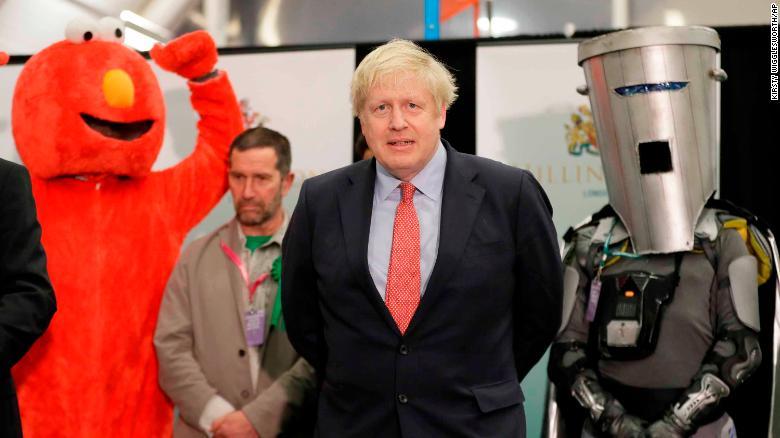8 Takeaways From The UK Election Result
Submitted by Bilal Hafeez of Macro Hive
The results are in and it looks like the Conservative party will have an 80-seat majority. This is much more than polling had suggested; it is the best Conservative result since the 1987 elections under Margaret Thatcher and the worst Labour one since 1935. We expected a Tory victory, but not of this magnitude. The pound and other UK markets have surged in response.
Here’s my early take on the consequences:
(1) Brexit is done. The UK will withdraw from the EU under the terms of Boris Johnson’s Brexit Withdrawal Agreement. Although the larger question of the future trading arrangement will remain, Boris can tout formal delivery of his promise for the UK to leave the EU.
(2) Extension of transition period. Of course, within the Withdrawal Agreement is a transition period for the UK to remain in the Single Market until the end of 2020. During this time, a new trading arrangement must be negotiated, but this will be extremely difficult within the deadline. Therefore, the UK will probably ask for an extension of the transition period in the first half of 2020. The fact that the UK will have already exited the EU combined with the size of Boris’ majority should reduce the risk of any hard Brexit factions within the Conservative party from derailing this process.
(3) The UK has leverage over the EU. For the past three years, a disunited UK government has been met by a united EU. Now, the roles will be reversed. The UK has a strong majority government – effectively first in ten years – while the EU’s division on how to approach the UK will be exposed. A critical one will be the EU’s security arrangement.
France’s Macron recently wanted to demote the importance of NATO and create a stronger European military power, while Germany’s Merkel continues to cite its importance. The UK is the other big military power within Europe along with France, and so could be pivotal in any future arrangement. Put another way: look at EU member Estonia. It shares a border with Russia and relies on NATO protection. How would it vote in any UK Brexit deal? Would it care more about the UK’s role in NATO or customs checks on the Irish border with the UK?
Aside from security concerns, every EU member will have to consider its economic relationships with the UK.
(4) The UK will avoid hard Brexit. While no deal will be as good as staying in the EU, the likely deal will be in the ‘soft Brexit’ category. This should remove the worst of the potential ‘hard Brexit’ consequences such as punitive tariffs and regulatory barriers with the EU and soften the transition. With the North and the Midlands forming important new power bases for the Conservatives, delivering a positive outcome for the industrial sector – notably the auto sector – will be critical for the Conservatives.
(5) Austerity is over. First, there has been a global shift away from austerity whether in the US or even IMF recommendations. Second, the Conservative manifesto has promised more public spending and typically the Conservatives overshoot manifesto promises. Third, given the new geographical gains, the Conservatives will likely focus on poverty alleviation. This means austerity is out, and fiscal stimulus is in. This should also provide another cushion during any transition period.
(6) Taxes have to rise somewhere. With a probable ambitious public spending programme, tax revenues will have to increase. Growth alone is probably insufficient. At the same time, the Conservatives have promised not to raise income taxes or VAT. So we may see other forms of taxes increasing – perhaps the most likely would be property. The current system of property taxes not being as tied to property values as in other countries would be an obvious reform. Effectively, this would be a wealth tax – another new idea that has garnered interest in policy circles. Whatever the specifics, though, taxes will have to rise somewhere.
(7) Scottish risks. The other big winner was the Scottish National Party (SNP) – they almost had a clean sweep in Scotland. This will likely bring to the fore calls for a Scottish independence vote. While the UK parliament will probably deny one, the SNP could institute an informal vote. This provides some political uncertainty in the years to come, though the economic impact on the UK at large would be limited.
(8) Labour party still at risk post-Corbyn. In 1983, Labour leader Michael Foot suffered one of the party’s worst defeats. Back then, it struggled to recover for over a decade. Foot had laid out a hard left economic agenda as well as, ironically, a Brexit position – at the time both were seen by the electorate as too radical. Corbyn has now surpassed Foot’s failure. Will Labour’s internal dynamics see this as a problem with Corbyn or a problem with their policy platform? If they view it solely as the former, replacing him but keeping the same policy platform, the Labour party could risk years in the wilderness.
We have yet to see the new government’s formal plans, so watch this space.
Tyler Durden
Sat, 12/14/2019 – 09:20
![]()
Zero Hedge’s mission is to widen the scope of financial, economic and political information available to the professional investing public, to skeptically examine and, where necessary, attack the flaccid institution that financial journalism has become, to liberate oppressed knowledge, to provide analysis uninhibited by political constraint and to facilitate information’s unending quest for freedom. Visit https://www.zerohedge.com

